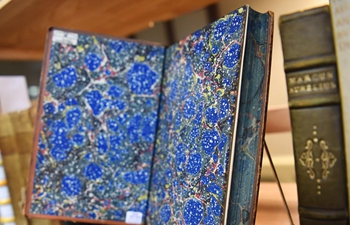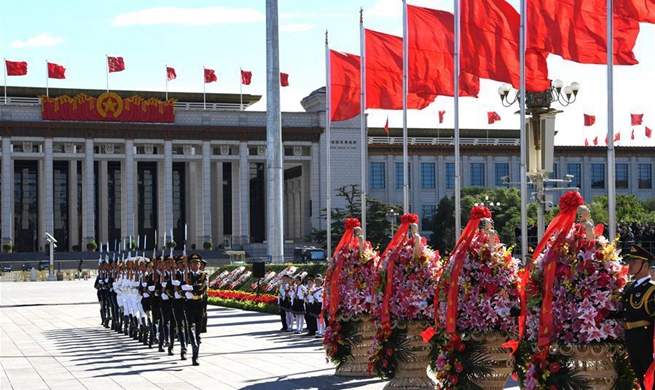WASHINGTON, Sept. 30 (Xinhua) -- A clinical trial showed that the use of a bacterial spores had early efficacy and manageable toxicities in patients with treatment-refractory solid tumor malignancies.
"Even after a single injection of this bacterial therapy, we see biological and, in some patients, clinically meaningful activity," said Filip Janku, associate professor at the University of Texas MD Anderson Cancer Center.
Janku reported the findings on Sunday at the ongoing CRI-CIMT-EATI-AACR International Cancer Immunotherapy Conference from Sept. 30 to Oct. 3.
"This strategy is feasible, has manageable adverse effects, and could be clinically meaningful in patients with few therapeutic options," said Janku.
Unlike prior anticancer bacterial therapies that may cause infection and severe side effects, the bacteria called C. novyi-NT is an attenuated bacterium that requires a low-oxygen environment to survive and proliferate and therefore does not affect healthy cells, according to the study.
"By exploiting the inherent differences between healthy and cancerous tissue, C. novyi-NT represents a very precise anticancer therapeutic that can specifically attack a patient's cancer," Janku said.
Janku's team injected the spores into the tumor in the phase I clinical study with 24 patients with treatment-refractory solid tumors. Among them, 15 had sarcoma, seven had diverse carcinoma, and two had melanoma.
A single dose came between from 10,000 to 3 million spores and it turned out that the maximum tolerated dose was 1 million spores.
The tumor shrinkage of greater than 10 percent observed in 23 percent of patients, according to the study. Also, tumors from 46 percent of them displayed spore germination and resultant tumor cell lysis.
"Despite the absence of clinical signs of germination in some patients, we saw improved tumor-specific immune responses through the increased secretion of T-cell cytokines and increased presence of tumor infiltrating lymphocytes in injected tumors," said Janku.
"From these preliminary results, it appears that C. novyi-NT is able to activate the immune response besides causing tumor destruction," said Janku.
Limitations of this study include a short follow-up time for some patients, as many entered into other clinical trials if they became available.

















